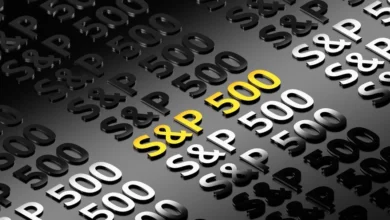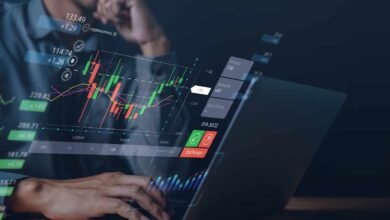Warren Buffett’s Wall Street Warning Gets More Attention

Due to his impressive track record, investors often look to Warren Buffett for guidance in any market environment. As chairman of Berkshire Hathaway, he has led the company to an annualized gain of nearly 20% over 59 years, significantly outperforming the S&P 500’s annualized growth of about 10%. This history has cemented Buffett’s reputation as a top investor.
Because of his proven success, investors pay close attention to Buffett’s words, especially during times of market uncertainty. Last year, Buffett’s caution became evident as he reduced his holdings in key stocks like Apple and Bank of America, closed out positions in S&P 500 index funds, and built up a record cash reserve. These moves signalled a more cautious outlook even as the bull market raged on.
In recent weeks, concerns over disappointing economic data and the impact of President Donald Trump’s tariffs on the economy and corporate earnings caused indexes to lose momentum. Both the Nasdaq and S&P 500 dropped into correction territory, falling more than 10% from their peaks. Amid this turbulence, Buffett’s warning has only grown louder.
Against the crowd
Warren Buffett, known as the Oracle of Omaha, is famous for selecting high-quality stocks that are reasonably priced and holding them for the long term. A prime example of this is his purchase of Coca-Cola in the 1980s when it was trading at just 15 times earnings, a stock he still owns today.
Buffett’s approach isn’t swayed by market trends, and he’s often willing to go against the crowd. In fact, he’s famously said that he and his team aim to be “fearful when others are greedy and greedy only when others are fearful.” This mindset has contributed to his market-beating performance.
Following this strategy, Buffett became a net seller last year as stocks soared, with net sales totalling $134 billion. As a result, Berkshire Hathaway’s cash position grew to over $334 billion. While Buffett hasn’t explicitly stated why he made these moves, a likely factor was the rising stock valuations, with stocks reaching historically high levels.
A Rare Situation
The S&P 500’s Shiller CAPE ratio (cyclically adjusted price-to-earnings ratio), which measures stock prices relative to earnings over a 10-year period, surpassed 37—only the third time this has occurred since the index’s creation. This metric indicates that stocks were becoming expensive, and Buffett likely took this into account when making his investment decisions.
Buffett’s actions last year served as an early warning for Wall Street, but a recent comment from him made the caution even clearer. This time, the focus was on the tariffs imposed by President Trump. Initially, tariffs were placed on various imports from China, Canada, and Mexico, and later expanded to include aluminium and steel from all countries. These moves raised concerns among investors, and earlier this month, both the Nasdaq and the S&P 500 dropped into correction territory.
Buffett called the tariffs “an act of war” in an interview, warning that they could result in higher consumer prices. He also emphasized that it’s important to consider “and then what?”—meaning who will bear the costs of these tariffs. While he didn’t provide further details, it’s clear that he sees the tariffs as a potential drag on companies and the economy.
So, does this mean Buffett is abandoning the market and that you should too? Not necessarily. While he’s been cautious amid rising valuations and is keeping an eye on the impact of tariffs, Buffett has always been a long-term investor, buying stocks in all types of market conditions—and that strategy has paid off over time.
The key is to focus on the valuation of individual stocks and their long-term prospects. Although the tariffs may pose challenges in the short term, if a company can weather the storm and its long-term growth looks solid, now could be a good time to buy, especially if the stock is undervalued.
Despite not heavily buying last year, Buffett still found opportunities, like investing in Constellation Brands and increasing his stake in Domino’s Pizza in the most recent quarter
The material on this page does not constitute financial advice and does not take into account your level of understanding, investment objectives, financial situation or any other specific needs. All information provided, including opinions, market research, mathematical results and technical analyzes published on the Website or transmitted To you by other means, it is provided for information purposes only and should in no way be construed as an offer or solicitation for a transaction in any financial instrument, nor should the information provided be construed as advice of a legal or financial nature on which any investment decisions you make should be based exclusively To your level of understanding, investment objectives, financial situation, or other specific needs, any decision to act on the information published on the Website or sent to you by other means is entirely at your own risk if you In doubt or unsure about your understanding of a particular product, instrument, service or transaction, you should seek professional or legal advice before trading. Investing in CFDs carries a high level of risk, as they are leveraged products and have small movements Often the market can result in much larger movements in the value of your investment, and this can work against you or in your favor. Please ensure you fully understand the risks involved, taking into account investments objectives and level of experience, before trading and, if necessary, seek independent advice.





